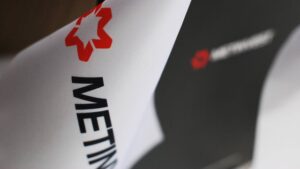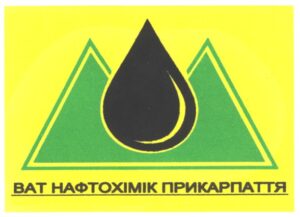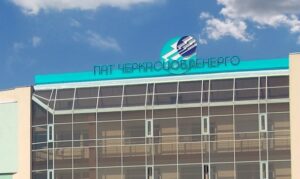
In 2025, the mining and metallurgical group Metinvest, including its associated companies and joint ventures, transferred UAH 18.7 billion to budgets of all levels in Ukraine, compared to UAH 19.8 billion in 2024.
According to the company’s press release on Monday, the largest amount of deductions was the subsoil use fee in the amount of UAH 4.6 billion, followed by UAH 3.5 billion in single social contributions and UAH 3.2 billion in personal income tax.
In addition, Metinvest’s Ukrainian enterprises paid UAH 1.9 billion in income tax and UAH 690 million in environmental tax last year. At the same time, value-added tax increased by 18% compared to last year’s figures, to almost UAH 2 billion, land fees increased by 10%, to UAH 1.4 billion, and military tax increased almost threefold, to UAH 916 million.
“The war and global challenges have changed the business reality and forced us to work in a new way. But the role of metallurgy remains strategic: it continues to support the economy, provide foreign exchange earnings, and fill the budget. As the largest company in the industry, Metinvest continues to operate, support the regions, and help the army,” said Yuriy Ryzhenkov, CEO of the group.
As reported, in 2024, Metinvest transferred UAH 19.8 billion in taxes and fees to budgets of all levels in Ukraine. In total, during almost four years of full-scale invasion, the group has supported the country’s economy with approximately UAH 74 billion.
Metinvest is a vertically integrated group of mining and metallurgical enterprises. Its enterprises are located in Ukraine – in the Donetsk, Luhansk, Zaporizhzhia, and Dnipropetrovsk regions – as well as in the European Union, the United Kingdom, and the United States. The main shareholders of the holding company are SCM Group (71.24%) and Smart Holding (23.76%). Metinvest Holding LLC is the managing company of the Metinvest Group.

PJSC Neftekhimik Prykarpattya (Nadvirna, Ivano-Frankivsk region) will hold a remote general meeting of shareholders on February 20, 2026, by means of a survey, according to the company’s announcement.
According to the document, the date of compiling the list of shareholders entitled to participate in the meeting is February 17, 2026. Voting will take place by ballots through depository institutions: the placement of a single ballot is scheduled for February 10 (no later than 11:00), and the ballots will be accepted until February 20 at 18:00.
The draft agenda, in particular, includes the consideration of the reports of the management and supervisory boards for 2018-2024, approval of annual reports and results of financial and economic activities for 2018-2024 (including the procedure for covering losses), appointment of an auditor, and cancellation of the current principles (code) of corporate governance.
The shareholders are also invited to consider a decision to change the name and type of the company, amend the charter (new version), approve updated regulations, and take measures to improve the financial condition. Separate paragraphs include the issue of applying to the commercial court to open bankruptcy proceedings, initiating preventive restructuring and possible liquidation of the company.
PJSC Neftekhimik Prykarpattya is an oil refinery located in Nadvirna (Ivano-Frankivsk region). According to open registers, the State Property Fund of Ukraine with a 26% stake is listed among the owners of large stakes in the company.

The National Bank of Ukraine has expanded the scope of the license for direct insurance activities of Insurance Company Vostok-West LLC (Kiev) on the basis of the company’s application, the regulator said.
Thus, the company has obtained the right to carry out direct insurance under insurance class 13 “Insurance of other liability (except as defined in classes 10, 11, 12)” on the risk of insurance of liability to third parties, other than the liability of the operator of a nuclear installation for nuclear damage that may be caused as a result of a nuclear incident, with restrictions and features that give grounds for the application of a simplified approach for the calculation of solvency capital and minimum capital.
According to the information, the structure of the company’s insurance portfolio for the first nine months of 2025 by client component is as follows: 99% of insurance payments were received from policyholders – individuals, and from legal entities – 1%. Along with insurance of agricultural products (99%), property insurance remains the priority direction.
The volume of insurance premiums in the mentioned period has amounted to UAH 12,838 mln, insurance reserves – UAH 9,649 mln. The volume of insurance indemnities for the nine months of 2025 compared to the same period of 2024 has increased by 40%.
IC “Vostok-West” has been working in the insurance market of Ukraine since 2005.

Cherkasyoblenergo JSC will hold an extraordinary general meeting of shareholders on February 27, 2026, remotely in the form of a survey, according to a notice in the information disclosure system.
As stated in the announcement, the list of shareholders eligible to participate will be compiled on February 24 (at 23:00). Voting by ballot will take place from 11:00 on February 17 to 18:00 on February 27; the ballot on issues other than the election of bodies is planned to be posted on February 17, and on the election of candidates – on February 23.
The agenda includes the termination of the powers of the members of the supervisory board, the election of a new composition, the approval of the terms of contracts with members of the supervisory board and the amount of their remuneration, as well as compensation for the costs of organizing the meeting.
Cherkasyoblenergo JSC is the operator of the electricity distribution system in the Cherkasy region; Ukrainian Energy Saving Service Company (UkrESCO) owns 25% of the shares, and Ukrainian Distribution Networks owns 46%.

Chinese President Xi Jinping says the yuan should be a global reserve currency.
China needs a “strong currency” that can be “widely used in international trade, investment, and currency markets and obtain reserve currency status,” he said in an article in the Chinese Communist Party’s official journal, Qiushi.
According to the head of state, the country needs a “powerful central bank” capable of effectively managing funds, globally competitive financial institutions, and international financial centers that can “attract global capital and influence global pricing.”
The Chinese leadership has long been trying to stimulate the internationalization of the yuan, but it is now becoming clearer what Xi Jinping means when he talks about the need for a “strong currency” and the financial foundation that needs to be built to support it, writes the Financial Times.
He first made these statements in an address to senior regional officials in 2024, but they were not published until last Saturday.
The Chinese leader’s article was published amid heightened uncertainty in global markets. The weakening of the dollar, the upcoming change in leadership at the Federal Reserve, and geopolitical and trade tensions have forced global central banks to rethink their dependence on dollar assets.
“China feels that a change in the world order is more real than ever,” notes Pantheon Macroeconomics economist Kevin Lam. According to him, Xi Jinping’s increased attention to the yuan reflects “new cracks in the world order.”
According to the International Monetary Fund, in the third quarter of last year, the yuan’s share in global reserves was only 1.93%, ranking sixth among all currencies. The dollar accounted for about 57% (compared to 71% in 2000), and the euro for about 20%.

JSC Zaporizhzhyaoblenergo will hold an extraordinary general meeting of shareholders on February 27, 2026, in the form of a survey (remotely), according to the initiator of the meeting, Ukrainian Distribution Networks.
According to the announcement, the list of shareholders eligible to participate in the meeting will be compiled on February 24 (as of 23:00), and ballots will be accepted from 11:00 on February 17 to 18:00 on February 27.
The agenda includes the termination of the powers of the current supervisory board, the election of a new board, the approval of the terms of civil law contracts with members of the supervisory board and their remuneration, as well as compensation for the costs of organizing and holding the meeting.
Zaporizhzhyaoblenergo JSC is the operator of the electricity distribution system in the Zaporizhzhya region; Ukrainian distribution networks own 60.2475% of the company’s shares.
Source: https://www.fixygen.ua/news/20260202/zaporizhzhyaoblenergo-27-lyutogo-provede-zbori-aktsioneriv.html